this class describes a time class More...
#include <CORE_Time.h>
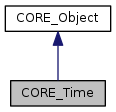
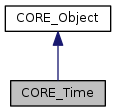
Public Member Functions | |
| long int | getCPUTime () const |
| return the CPU time in 1/60 seconds More... | |
| int | getWeekYear (int &year) const |
| get the week of the year More... | |
| int | getYear () const |
| return the year More... | |
| int | getMonth () const |
| return the month More... | |
| int | getDaysNumberInMonth () const |
| return the number of days in month More... | |
| int | getDay () const |
| return the day More... | |
| tString | getWeekIntervalString () |
| get the week interval monday –> Sunday of the current time More... | |
| void | setToFirstWeekDay (const int &year, const int &week) |
| set the date to the first week day week must be in [1..53] the first day is a monday More... | |
| void | setToWeekDay (const int &year, const int &week, const int &day) |
| set the date to the week day week must be in [1..53] day in [0,6] 0:MONDAY....6:SUNDAY the first day is a monday More... | |
| int | getWeekDay () const |
| return the day of the week 0:Sunday [0..6] More... | |
| int | getMinutes () const |
| return the minutes of the time More... | |
| int | getSeconds () const |
| return the seconds of the time More... | |
| int | getHours () const |
| return the hours of the time More... | |
| int | getMilliSeconds () const |
| return the milliseconds seconds of the time More... | |
| tTime | getSecondsSince1900 () const |
| return the number of seconds since 1900 More... | |
| void | setDate (const tTime &seconds) |
| set the date from 1900 in seconds More... | |
| void | setDate (const int &year, const int &month, const int &day, const int &hour, const int &minutes, const int &seconds, const int &ms) |
| set the date year>=0 month in [1,12] day in [1,31] More... | |
| void | setDate (const int &year, const int &month, const int &day, const int &hour, const int &minutes, const int &seconds) |
| set the date year>=0 month in [1,12] day in [1,31] More... | |
| void | setDate (int year, int month, int day) |
| set the date year>=0 month in [1,12] More... | |
| void | setDate (const tString &date) |
| set the date from a string year-month-day More... | |
| void | setDate (const CORE_Time &time) |
| set the date from a string year-month-day More... | |
| void | setDate (SP::CORE_Time time) |
| set the date from a string year-month-day More... | |
| void | setDate (const CORE_Time *time) |
| set the date from a string year-month-day More... | |
| void | setDate (const tString &date, const tString &format) |
| set the date from a string date and with format More... | |
| void | setHour (const tString &h) |
| set hour xxhyy More... | |
| void | setTime (const int &hour, const int &minutes, const int &seconds) |
| set the time More... | |
| void | setTime (const tString &date) |
| set the time from a string hour:min:sec More... | |
| tRelativeInteger | sub (const CORE_Time &time2) const |
| get the difference with time2 this -time2 in secunds More... | |
| tRelativeInteger | sub (const SP::CORE_Time &time2) const |
| get the difference with time2 this -time2 in secunds More... | |
| tRelativeInteger | sub (const CORE_Time *time2) const |
| get the difference with time2 this -time2 in secunds More... | |
| tRelativeInteger | subInMilliSeconds (const CORE_Time &time2) const |
| get the difference with time2 this -time2 in secunds More... | |
| tRelativeInteger | subInMilliSeconds (const SP::CORE_Time &time2) const |
| get the difference with time2 this -time2 in secunds More... | |
| tRelativeInteger | subInMilliSeconds (const CORE_Time *time2) const |
| get the difference with time2 this -time2 in secunds More... | |
| void | setToNextDay () |
| set to next day More... | |
| void | setToPreviousDay () |
| set to previous day More... | |
| void | setToPreviousDays (const int &nDays) |
| set to days ago More... | |
| void | setToNextMonth () |
| set to next month More... | |
| void | setToPreviousMonth () |
| set to previous month More... | |
| void | setToNextWeek () |
| set to next week More... | |
| void | setToPreviousWeek () |
| set to previoust week More... | |
| void | setToLastDay (const int &year, const int &month) |
| set to last day of month More... | |
| tBoolean | isEqual (const CORE_Time *t) const |
| return true if the 2 dates are equals More... | |
| tBoolean | isEqual (const CORE_Time &t) const |
| return true if the 2 dates are equals More... | |
| tBoolean | isBefore (const CORE_Time &t) const |
| return true if this < t More... | |
| tBoolean | isBefore (const CORE_Time *t) const |
| return true if this < t More... | |
| tBoolean | isAfter (const CORE_Time &t) const |
| return true if this > t More... | |
| tBoolean | isAfter (const CORE_Time *t) const |
| return true if this > t More... | |
| tBoolean | isBeforeOrEqual (const CORE_Time &t) const |
| return true if this <= t More... | |
| tBoolean | isAfterOrEqual (const CORE_Time &t) const |
| return true if this >= t More... | |
| tBoolean | isEqual (const SP::CORE_Time &t) const |
| return true if the 2 dates are equals More... | |
| tBoolean | isBefore (const SP::CORE_Time &t) const |
| return true if this < t More... | |
| tBoolean | isAfter (const SP::CORE_Time &t) const |
| return true if this > t More... | |
| tBoolean | isBeforeOrEqual (const SP::CORE_Time &t) const |
| return true if this <= t More... | |
| tBoolean | isAfterOrEqual (const SP::CORE_Time &t) const |
| return true if this >= t More... | |
| virtual tString | toString () const |
| return the time into a string More... | |
| tString | toString (const tString &format) const |
| return the time into a string with format More... | |
| void | getSharedPointer (SP::CORE_Object &p) |
| get the shared pointer of this class into p More... | |
| void | getSharedPointer (SPC::CORE_Object &p) const |
| get the shared pointer of this class into p More... | |
| tString | getClassName () const |
| return the class name of the object More... | |
| tString | getIdentityString () const |
| return the identity string of the object of the form className_at_address More... | |
| tString | getPointerAddress () const |
| return the identity string of the object More... | |
| template<class T > | |
| tBoolean | isInstanceOf () const |
| return true if the object is an instance of T More... | |
| virtual void | print () |
| print the class More... | |
| virtual ostream & | print (ostream &out) const |
| print the class More... | |
| virtual void | print (const tString &message) |
| print the class More... | |
| virtual void | print (const tInteger &str) |
| print More... | |
| virtual void | print (const tRelativeInteger &str) |
| print More... | |
| virtual void | print (const tReal &str) |
| print More... | |
| virtual void | print (const int &str) |
| print More... | |
Static Public Member Functions | |
| static SP::CORE_Time | New () |
| creates a time object More... | |
| static SP::CORE_Time | New (const CORE_Time &time) |
| creates a time object More... | |
| static SP::CORE_Time | New (const CORE_Time *time) |
| creates a time object More... | |
| static SP::CORE_Time | New (const tTime &time) |
| creates a time object More... | |
| static SP::CORE_Time | New (const SP::CORE_Time &time) |
| creates a time object More... | |
| static SP::CORE_Time | New (const int &year, const int &month, const int &day) |
| creates a time object year > 1900 month [1,12] day [1,31] More... | |
| static tTime | getDateInSeconds () |
| return the time in 1/60 seconds More... | |
| static tTime | getDateInMilliSeconds () |
| return the time in 1/60 seconds More... | |
| static long int | getTime () |
| return the time in 1/60 seconds More... | |
| static tString | getWeekIntervalString (const int &year, const int &week) |
| get the week interval monday –> sunday week in [1...53] More... | |
| static tRelativeInteger | subTimes (const CORE_Time &time1, const CORE_Time &time2) |
| get the difference betwen two dates in secund time1-time2 More... | |
| static tRelativeInteger | subTimes (const SP::CORE_Time &time1, const SP::CORE_Time &time2) |
| get the difference betwen two dates in secund time1-time2 More... | |
| static tRelativeInteger | subTimesInMilliSeconds (const CORE_Time &time1, const CORE_Time &time2) |
| get the difference betwen two dates in milli-secund time1-time2 More... | |
| static tRelativeInteger | subTimesInMilliSeconds (const SP::CORE_Time &time1, const SP::CORE_Time &time2) |
| get the difference betwen two dates in secund time1-time2 More... | |
| static tString | getDuration (const long int &duration, int &days, int &hours, int &minutes, int &seconds, int &ms) |
| get duration More... | |
| static tString | getDuration (const long int &duration) |
| get duration More... | |
| static tString | getClassName (const tString &identityString) |
| return the class name of the object using only the identity string More... | |
| template<class T > | |
| static tString | getTypeName () |
| get type name More... | |
| static tBoolean | is64Architecture () |
| return true if the machine is a 64 bits machine More... | |
| static tBoolean | is32Architecture () |
| return true if the machine is a 32 bits machine More... | |
| static tString | pointer2String (const void *obj) |
| return the string represantation of a pointer More... | |
| static void | setOutput (ostream &out) |
| set output More... | |
| static ostream & | getOutput () |
| get output More... | |
| static void | printObjectsInMemory () |
| print object in memory More... | |
| static ostream & | print (ostream &out, const tString &message) |
| print the class More... | |
| static void | outputPrint (const tString &message) |
Static Public Attributes | |
| static const tTime | MAX_YEAR =1900+ULONG_MAX/(3600*24*365) |
| MAX number of years. More... | |
| static const tString | DAYS [] |
| days names in english More... | |
| static const tString | JOURS [] |
| days names in french More... | |
| static const tString | MONTHS [] |
| month names in english More... | |
| static const tString | MOIS [] |
| month names in french More... | |
| static tBoolean | mIsMemoryTesting =false |
| indicator to store all classes created and deleted only for debuging version More... | |
Protected Member Functions | |
| CORE_Time () | |
| create a general time object More... | |
| virtual | ~CORE_Time () |
| remove More... | |
| void | setThis (SP::CORE_Object p) |
| set this weak shared pointer called toDoAfterThis setting method More... | |
| virtual void | setType (tString type) |
| set the type of the object More... | |
| virtual void | toDoAfterThisSetting () |
| method called after setThis() method this method can oly be called once. More... | |
Detailed Description
this class describes a time class
Attributes:
- mYear is the year of the date
- card:1
- type:int
- mMonth is the month of the date
- card:1
- type:int
- mWeek is the week of the date
- card:1
- type:int
- mWeekDay the week day of the date
- card:1
- type:int
- mDay is the year day of the date
- card:1
- type:int
- mHours the hours of the date
- card:1
- type:int
- mSeconds the seconds of the date
- card:1
- type:int
- mMilliSeconds the milliseconds of the date
- card:1
- type:int
- mCPUTime is the CPU date of the creation of the class
- card:1
- type:int
- mSecondsSince1900 is the date in seconds from 1900
- card:1
- type:long int
- DAYS is a list of string name of day in english
- card:*
- type:string
- MONTHS is a list of string name of month in english
- card:*
- type:string
- Version
- 1.0
Constructor & Destructor Documentation
|
protected |
|
protectedvirtual |
remove
Member Function Documentation
return the class name of the object using only the identity string
Referenced by CORE_Object::printObjectsInMemory().

|
inherited |
return the class name of the object
- Returns
- the class name of the object
References tString.
Referenced by CORE_Object::getIdentityString().
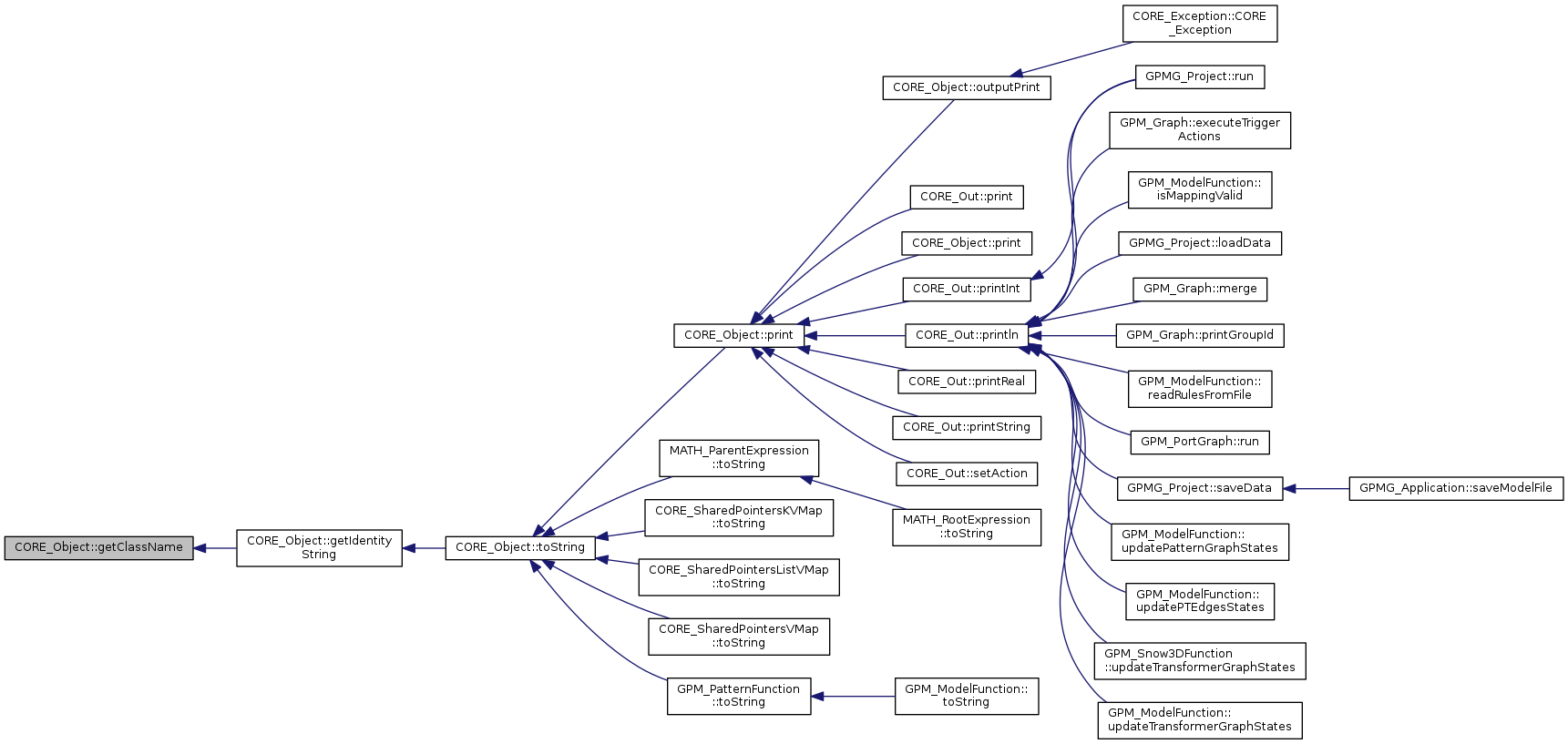
|
inline |
return the CPU time in 1/60 seconds
|
inlinestatic |
|
inlinestatic |
|
inline |
|
inline |
|
static |
get duration
References CORE_String::toString(), and tString.
Referenced by getDuration().


|
inlinestatic |
|
inline |
return the hours of the time
[0..23]
Referenced by setDate().

|
inlineinherited |
return the identity string of the object of the form className_at_address
- Returns
- the identity string of the object
References CORE_Object::getClassName(), CORE_Object::pointer2String(), and tString.
Referenced by CORE_Object::toString().

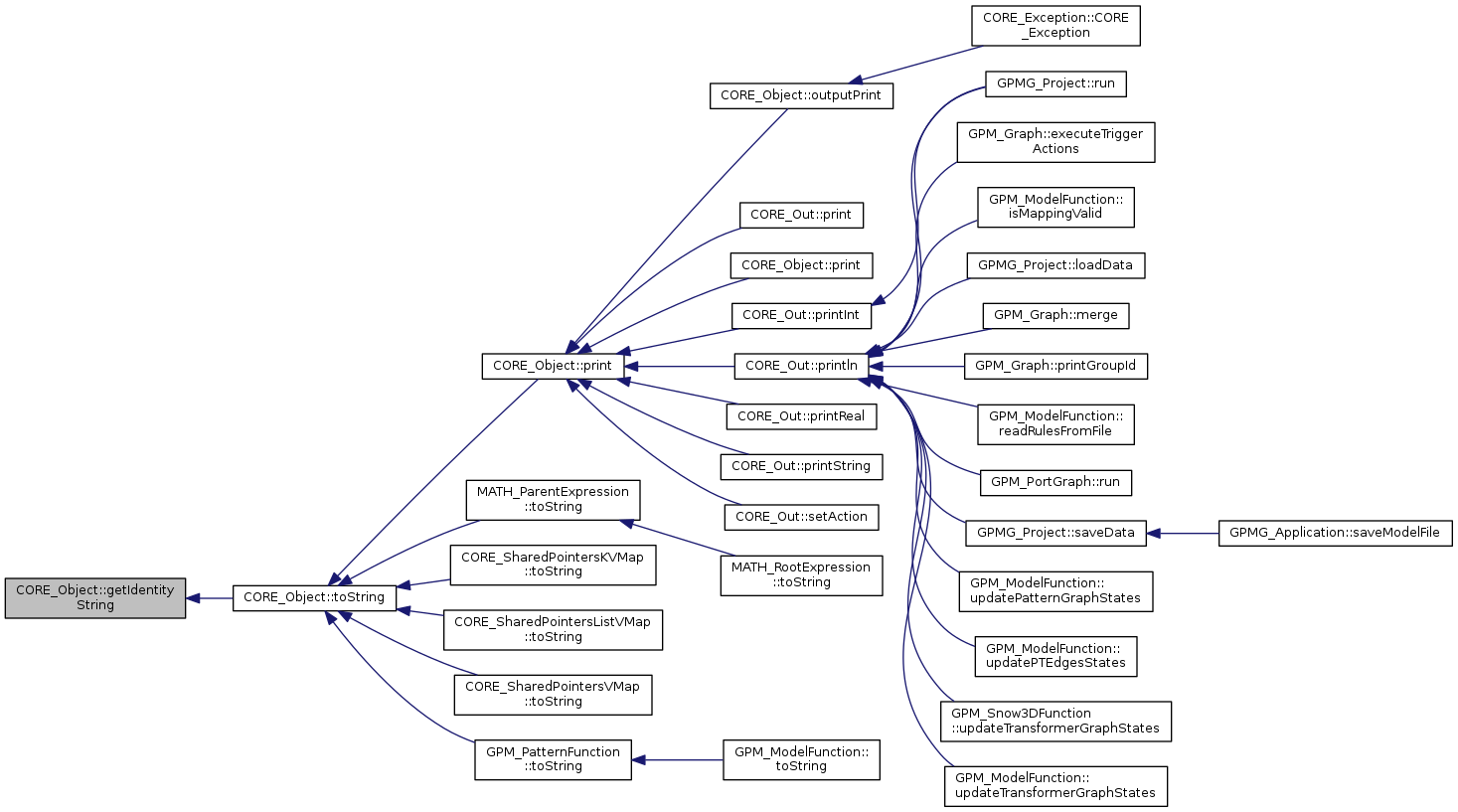
|
inline |
return the milliseconds seconds of the time
Referenced by subInMilliSeconds(), and subTimesInMilliSeconds().

|
inline |
return the minutes of the time
[0..59]
Referenced by setDate().

|
inline |
|
inlinestaticinherited |
get output
|
inlineinherited |
return the identity string of the object
- Returns
- the identity string of the object
References CORE_Object::pointer2String().

|
inline |
return the seconds of the time
[0..60]
Referenced by setDate().

|
inline |
return the number of seconds since 1900
Referenced by isAfter(), isAfterOrEqual(), isBefore(), isBeforeOrEqual(), isEqual(), setToFirstWeekDay(), setToWeekDay(), sub(), subInMilliSeconds(), subTimes(), and subTimesInMilliSeconds().

|
inlineinherited |
get the shared pointer of this class into p
Referenced by MATH_ParentExpression::addArgument(), GPMG_EnvironmentPanel::componentClicked(), GPM_GraphElement::copy(), CORE_Map< Key, Value >::getSharedPointer(), CORE_Array< T >::getSharedPointer(), CORE_Vector< T >::getSharedPointer(), CORE_Matrix< T >::getSharedPointer(), CORE_Object::printObjectsInMemory(), MATH_ParentExpression::setArgument(), GPMG_EnvironmentPanel::setEnvironment(), GPM_GraphElement::setGraph(), GPMG_GraphElementWindow::setGraphElement(), GPMG_ShowGraphDrawPanel::showGraph(), and GPMG_RuleGraphDrawPanel::showRule().
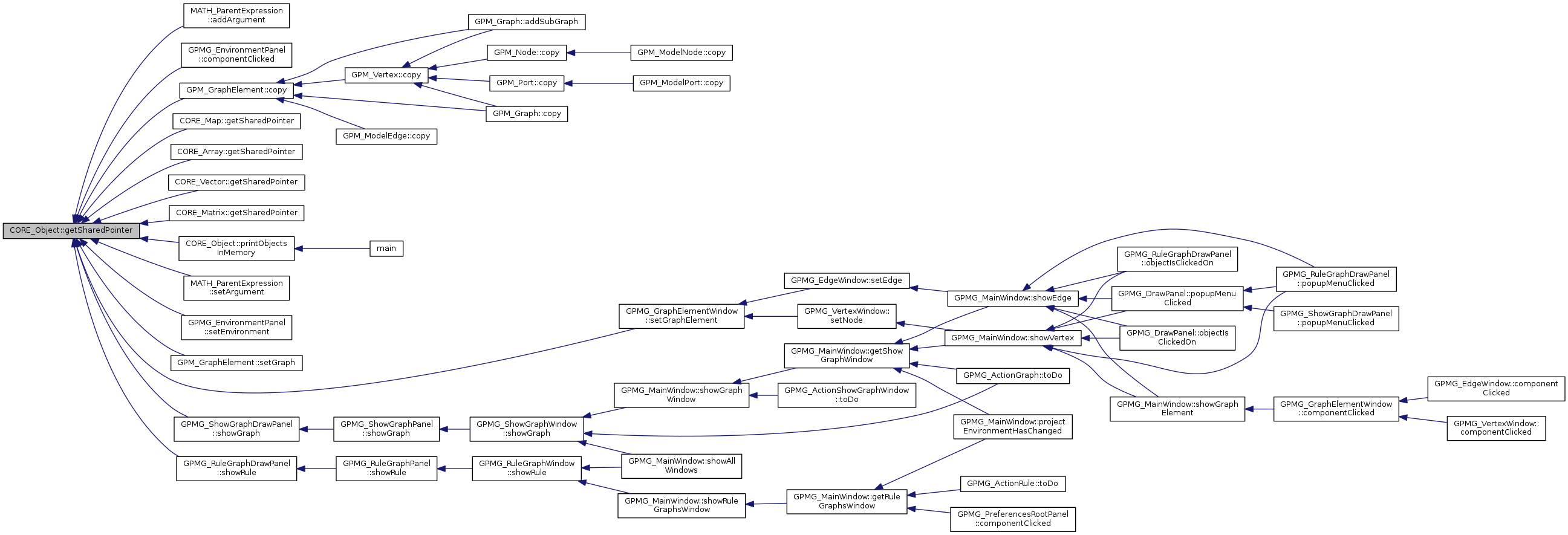
|
inlineinherited |
get the shared pointer of this class into p
|
inlinestatic |
return the time in 1/60 seconds
References getDateInMilliSeconds().

|
inlinestaticinherited |
get type name
References tString.
|
inline |
return the day of the week 0:Sunday [0..6]
|
static |
get the week interval monday –> sunday week in [1...53]
References ASSERT_IN, MAX_YEAR, New(), CORE_Integer::toString(), and tString.

|
inline |
get the week interval monday –> Sunday of the current time
|
inline |
get the week of the year
[1...53]
|
inline |
|
inlinestaticinherited |
return true if the machine is a 32 bits machine
References CORE_Object::is64Architecture().

|
staticinherited |
return true if the machine is a 64 bits machine
Referenced by CORE_Object::is32Architecture().

return true if this > t
References getSecondsSince1900(), and null.

|
inline |
return true if this > t
return true if this >= t
References getSecondsSince1900().

|
inline |
return true if this >= t
return true if this < t
References getSecondsSince1900(), and null.

|
inline |
return true if this <= t
References getSecondsSince1900().

|
inline |
return true if this <= t
References getSecondsSince1900().

return true if the 2 dates are equals
References getSecondsSince1900(), and null.

return true if the 2 dates are equals
References getSecondsSince1900().

|
inline |
return true if the 2 dates are equals
|
inlineinherited |
return true if the object is an instance of T
References null.
Referenced by MATH_BinaryOperator::insertInTree(), MATH_UnaryOperator::insertInTree(), and MATH_EndBlock::insertInTree().
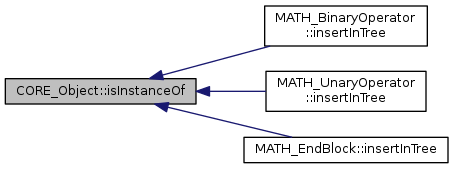
|
inlinestatic |
creates a time object
References CORE_Time().
Referenced by getDateInMilliSeconds(), getDateInSeconds(), getDaysNumberInMonth(), getWeekIntervalString(), GPMG_MovieGraphDrawPanel::GPMG_MovieGraphDrawPanel(), and New().


|
inlinestatic |
|
inlinestatic |
|
inlinestatic |
|
inlinestatic |
|
inlinestatic |
creates a time object year > 1900 month [1,12] day [1,31]
References CORE_Time().

|
staticinherited |
print on output
References null, and CORE_Object::print().
Referenced by CORE_Exception::CORE_Exception().


|
staticinherited |
return the string represantation of a pointer
References tString.
Referenced by CORE_Object::CORE_Object(), CORE_Object::getIdentityString(), CORE_Object::getPointerAddress(), and CORE_Object::~CORE_Object().
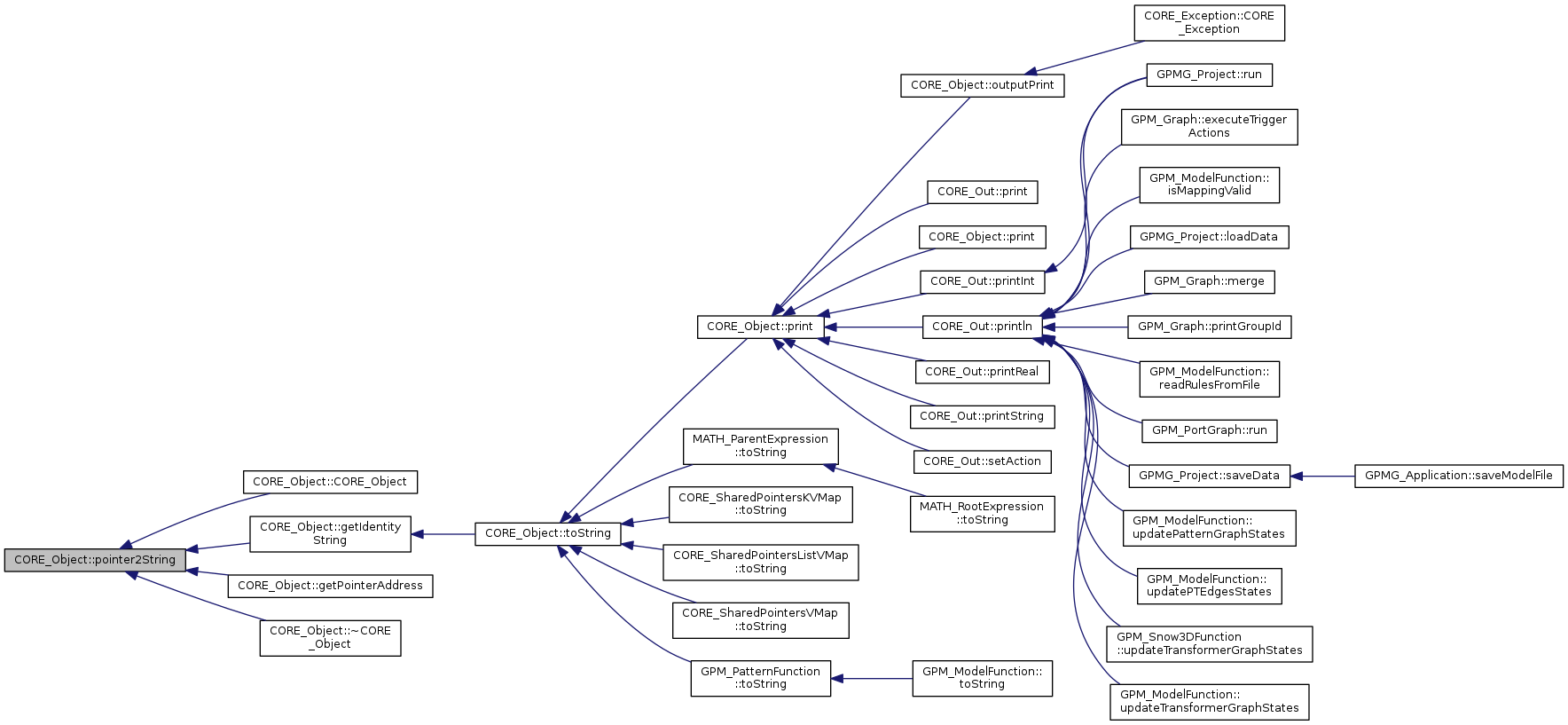
|
inlinevirtualinherited |
print the class
References CORE_Object::toString().
Referenced by CORE_Object::outputPrint(), CORE_Out::print(), CORE_Object::print(), CORE_Out::printInt(), CORE_Out::println(), CORE_Out::printReal(), CORE_Out::printString(), and CORE_Out::setAction().

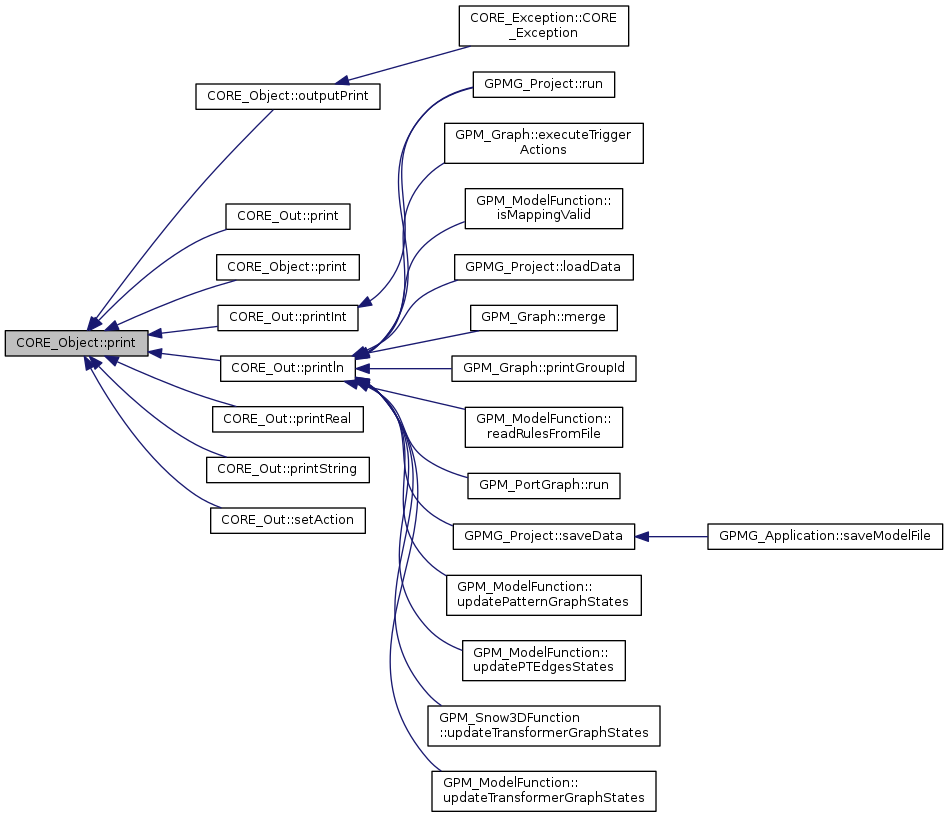
|
inlinevirtualinherited |
print the class
References CORE_Object::print(), and CORE_Object::toString().

|
virtualinherited |
print the class
Reimplemented in CORE_Out.
References null, and CORE_Object::print().

|
virtualinherited |
References null.
|
virtualinherited |
References null.
|
inlinestaticinherited |
print the class
|
staticinherited |
print object in memory
References CORE_Object::getClassName(), CORE_Object::getSharedPointer(), and CORE_Object::mIsMemoryTesting.
Referenced by main().


| void CORE_Time::setDate | ( | const tTime & | seconds | ) |
set the date from 1900 in seconds
Referenced by setDate(), setToFirstWeekDay(), setToLastDay(), setToNextDay(), setToNextMonth(), setToNextWeek(), setToPreviousDay(), setToPreviousDays(), setToPreviousMonth(), setToPreviousWeek(), and setToWeekDay().

| void CORE_Time::setDate | ( | const int & | year, |
| const int & | month, | ||
| const int & | day, | ||
| const int & | hour, | ||
| const int & | minutes, | ||
| const int & | seconds, | ||
| const int & | ms | ||
| ) |
|
inline |
set the date year>=0 month in [1,12] day in [1,31]
References setDate().

|
inline |
set the date year>=0 month in [1,12]
References setDate().

| void CORE_Time::setDate | ( | const tString & | date | ) |
set the date from a string year-month-day
References setDate().

|
inline |
set the date from a string year-month-day
References getDay(), getHours(), getMinutes(), getMonth(), getSeconds(), getYear(), and setDate().

|
inline |
set the date from a string year-month-day
References setDate().

|
inline |
set the date from a string year-month-day
References getDay(), getHours(), getMinutes(), getMonth(), getSeconds(), getYear(), null, and setDate().

set the date from a string date and with format
format may be:
- DD/MM/YY
- DD/MM/YYY
- YY/MM/DD
- YYYY/MM/D
- DD/MM/YY-HHhMM
- YYMMDD-HHMMSSsss
- YYYYMMDD-HHMMSSsss
References MAX_YEAR, CORE_Integer::parseInt(), and setDate().

| void CORE_Time::setHour | ( | const tString & | h | ) |
set hour xxhyy
References CORE_Integer::parseInt(), and setTime().

|
inlinestaticinherited |
set output
|
inlineprotectedinherited |
set this weak shared pointer called toDoAfterThis setting method
References CORE_Object::toDoAfterThisSetting().

| void CORE_Time::setTime | ( | const int & | hour, |
| const int & | minutes, | ||
| const int & | seconds | ||
| ) |
| void CORE_Time::setTime | ( | const tString & | date | ) |
set the time from a string hour:min:sec
References CORE_String::New(), CORE_Integer::parseInt(), and setTime().

| void CORE_Time::setToFirstWeekDay | ( | const int & | year, |
| const int & | week | ||
| ) |
|
inline |
|
inline |
|
inline |
|
inline |
|
inline |
|
inline |
|
inline |
|
inline |
| void CORE_Time::setToWeekDay | ( | const int & | year, |
| const int & | week, | ||
| const int & | day | ||
| ) |
|
inlineprotectedvirtualinherited |
set the type of the object
Referenced by CORE_CommandLine::CORE_CommandLine(), CORE_IO::CORE_IO(), GPM_2DSnowGraph::GPM_2DSnowGraph(), GPM_BGLTest::GPM_BGLTest(), GPM_ClassFactory::GPM_ClassFactory(), GPM_ConwayFunction::GPM_ConwayFunction(), GPM_ConwayGraph::GPM_ConwayGraph(), GPM_CoreRun::GPM_CoreRun(), GPM_CoreTest::GPM_CoreTest(), GPM_Edge::GPM_Edge(), GPM_ExamplesRun::GPM_ExamplesRun(), GPM_Function::GPM_Function(), GPM_Graph::GPM_Graph(), GPM_GraphElement::GPM_GraphElement(), GPM_ModelGraph::GPM_ModelGraph(), GPM_Node::GPM_Node(), GPM_Object::GPM_Object(), GPM_PatternFunction::GPM_PatternFunction(), GPM_Port::GPM_Port(), GPM_PortGraph::GPM_PortGraph(), GPM_Snow2DFunction::GPM_Snow2DFunction(), GPM_Snow3DFunction::GPM_Snow3DFunction(), GPM_Vertex::GPM_Vertex(), and MATH_ExpressionRun::MATH_ExpressionRun().
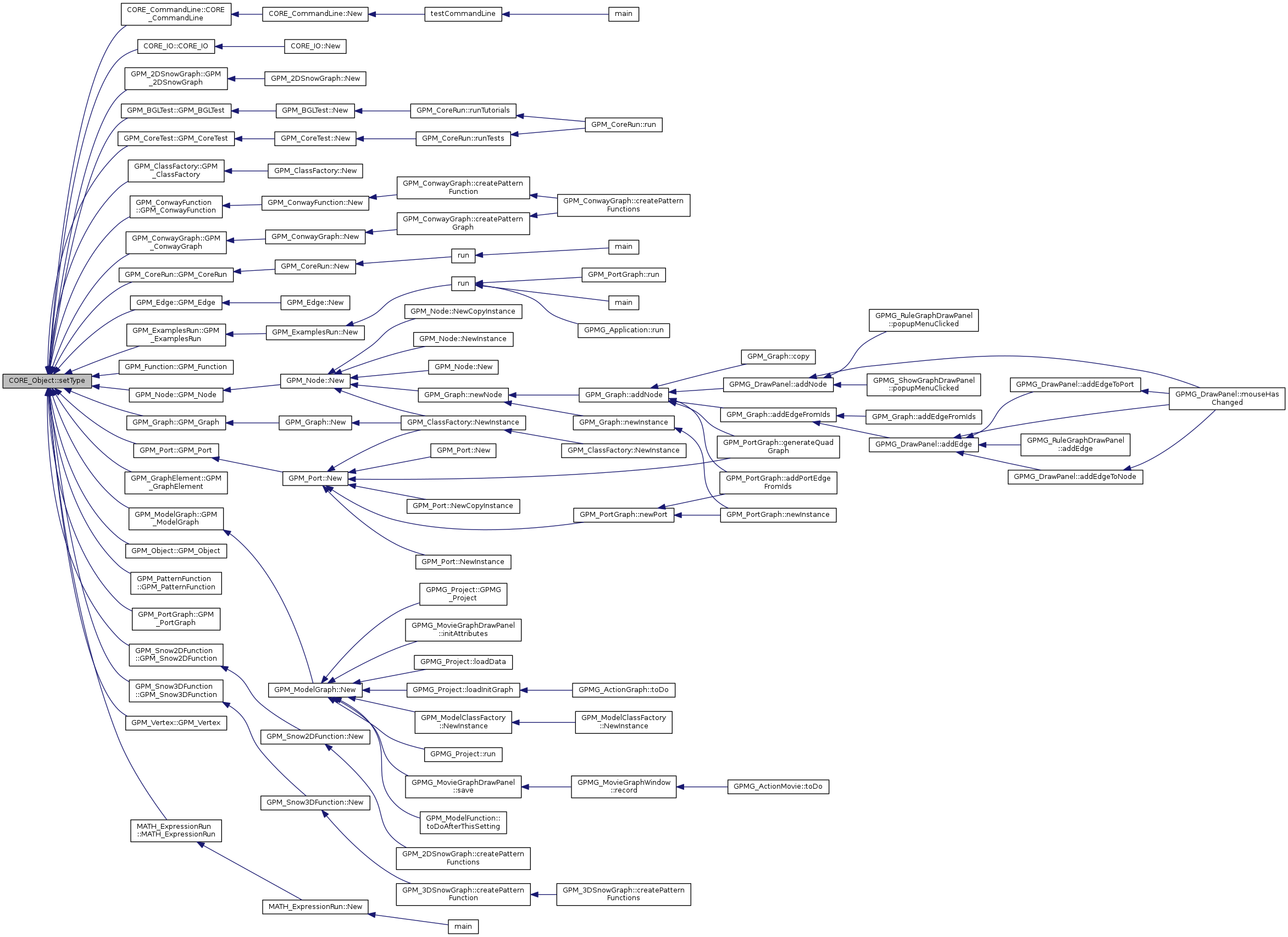
| tRelativeInteger CORE_Time::sub | ( | const CORE_Time & | time2 | ) | const |
get the difference with time2 this -time2 in secunds
References getSecondsSince1900().
Referenced by sub(), and subInMilliSeconds().


|
inline |
get the difference with time2 this -time2 in secunds
References sub().

|
inline |
get the difference with time2 this -time2 in secunds
References getSecondsSince1900(), null, and sub().

| tRelativeInteger CORE_Time::subInMilliSeconds | ( | const CORE_Time & | time2 | ) | const |
get the difference with time2 this -time2 in secunds
References getMilliSeconds(), and getSecondsSince1900().

|
inline |
get the difference with time2 this -time2 in secunds
References sub().

|
inline |
get the difference with time2 this -time2 in secunds
References getSecondsSince1900(), null, and sub().

|
static |
get the difference betwen two dates in secund time1-time2
References getSecondsSince1900().

|
static |
get the difference betwen two dates in secund time1-time2
References null.
|
static |
get the difference betwen two dates in milli-secund time1-time2
References getMilliSeconds(), and getSecondsSince1900().

|
static |
get the difference betwen two dates in secund time1-time2
References null.
|
inlineprotectedvirtualinherited |
method called after setThis() method this method can oly be called once.
Reimplemented in GPM_2DSnowGraph, GPMG_EnvironmentWindow, GPM_GraphElement, GPM_ModelFunction, GPM_ModelGraph, GPMG_RuleGraphWindow, GPMG_MovieGraphWindow, GPMG_ShowGraphWindow, and GPM_Function.
Referenced by CORE_Object::setThis(), GPM_ModelGraph::toDoAfterThisSetting(), GPM_GraphElement::toDoAfterThisSetting(), and GPM_2DSnowGraph::toDoAfterThisSetting().
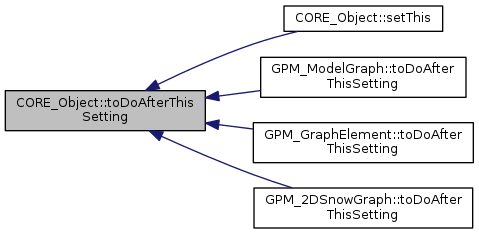
|
virtual |
return the time into a string
Reimplemented from CORE_Object.
References tString.
Referenced by toString().

return the time into a string with format
- format=""
- format="DD/MM/YY"
- format="DD/MM/YYYY"
- format="YYYY/MM/DD"
- format="DD/MM/YY-HHhMM"
- format="YYMMDD-HHMMSS"
- format="YYMMDD-HHMMSSsss"
- format="YYYYMMDD-HHMMSSsss"
References CORE_Integer::toString(), toString(), and tString.

Member Data Documentation
|
static |
days names in english
|
static |
days names in french
|
static |
MAX number of years.
Referenced by getWeekIntervalString(), setDate(), setToFirstWeekDay(), and setToWeekDay().
|
staticinherited |
indicator to store all classes created and deleted only for debuging version
Referenced by CORE_Object::CORE_Object(), main(), CORE_Object::printObjectsInMemory(), and CORE_Object::~CORE_Object().
|
static |
month names in french
|
static |
month names in english
The documentation for this class was generated from the following files:



























 1.8.8
1.8.8